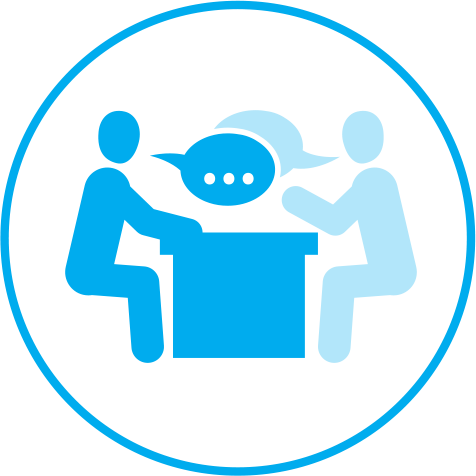How Social Skills Training Can Help Children, Teens and Young Adults with Autism
We all need to be able to socialize to be successful in life — to accomplish day-to-day activities of living, maintain a job, create friendships and intimate relationships, and build a family, if we choose to pursue one. These are core values of being happy for many people. They require a level of interaction and understanding between people.
But socializing can be challenging. It’s particularly tough for those with autism spectrum disorder (ASD) because some of the emotional and intellectual deficits typically associated with autism can make social interaction difficult.
Fortunately, those with autism can get help learning and developing social skills. The benefits are immediate and long-lasting: not just improved daily functioning but higher enjoyment and satisfaction, with lower incidence of isolation, depression and suicide.
Challenging Behaviors that Social Skills Training Can Address
Social skills training can help individuals with autism who:
- Avoid other people and prefer to hang out by themselves
- Prefer to be with adults, or with people who are younger
- Have a difficult time making eye contact with others
- Won’t engage in conversation with other people, or walk away from people who try to engage them
- Get aggressive (loud, physical or violent) when approached by other people
- Have a hard time sharing their stuff, who dominate conversation, who don’t follow rules of sportsmanship, or who are overly bossy
- Have boundary issues — they get too close to other people or avoid closeness with others
- Are too accommodating and may be taken advantage of, such as by peers who ask them to do their homework or give them their lunch money
If your child has ASD and demonstrates some or all of these behaviors, they could likely benefit from social skills training.
What Can Be Learned from Social Skills Training?
Social skills training most often is a complement to behavioral therapy based on principles of applied behavior analysis. The two go hand in hand.
Behavioral therapy with an individualized treatment plan identifies specific areas and issues that can be addressed through a customized program designed to modify challenging behaviors and improve functional living and quality of life. Social skills training offers the opportunity to put the skills learned in therapy to work in a group setting, while also developing skills that can only be learned in a group.
For younger kids, social skills training focuses on following group instructions, joining in group behavior, greeting group members, sharing and taking turns, conflict resolution, identification of different emotions, and initiating interaction; in other words, how to approach and communicate with other people in group settings.
For pre-teens and teenagers, social skills training focuses on joining a group, how to use verbal and nonverbal communication and behavior to determine if the group is open to being joined, how to start a conversation, how to be aware of certain behaviors that might seem unusual to others, problem-solving, conflict resolution, assertiveness training, and how to identify other people’s intentions. For young adults, social skills training can continue to further develop these skills.
A common thread in the training is teaching self-preservation skills including assertiveness, so kids learn how to stand up for themselves and, as they get older, how to recognize and respond to bullying including cyber-bullying.
Another Benefit of Social Skills Training: Support
Everyone responds to social skills training differently, largely based on their age and level of functioning. Some need more repetition (more practice); others learn more quickly.
For most, the training is actually fun because they experience the benefits in real-time … they get to engage with and form bonds with their peers. As a result, the learned behaviors become self-reinforcing and group members get support from each other. That’s the benefit of positive social interaction, which can be fulfilling in and of itself.
For more information about social skills training, visit our social skills information page or Request a Consultation for a complimentary 30 minute in-person or phone consultation to discuss social skills training available in your area.
About the Author
Iris Chiang is a Board-Certified Behavior Analyst (BCBA) with 13+ years of experience providing applied behavior analysis (ABA)-based treatment to children and young adults with developmental disabilities. Her specific areas of interest in ABA include social skills training and staff training. Iris also holds a school counseling credential and received formal training in PECS (picture exchange communication system), PEAK, ACT (Acceptance Commitment Therapy), CBT (Cognitive Behavioral Therapy), and PEERS. Iris currently serves as the Director of Clinical Services for California Psychcare in Long Beach.
Personal interests include spending time with her husband and 2 daughters, with a third daughter on the way, practicing mindfulness, and trying new recipes as an amateur chef.

Director of Clinical Services
California Psychcare
Our social skills training help individuals function more effectively in social situations and cultivates skills needed to create positive interactions with others. Delivered at one of our behavioral health treatment centers, we offer age-based groups for kids, preteens, teens, and young adults. Our groups are conducted in a comfortable setting where individuals with developmental disabilities can develop and practice their social skills with peers on a regular basis.


